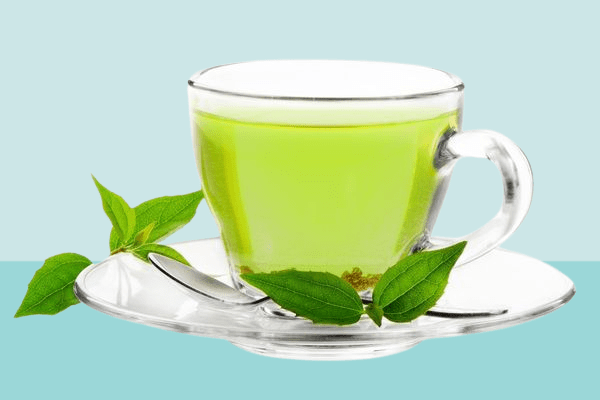What happens if I drink green tea everyday?
How much should green tea be drunk a day? It is recommended to consume a maximum of 3 cups of green tea per day due to the caffeine level it contains for users who ask the question of how often green tea should be drunk. Consuming green tea more than its ideal measurements can cause physiological and psychological disorders in many people.
Does drinking green tea every day make you lose weight? Green tea helps weight loss by increasing fat burning. Therefore, green tea consumption facilitates weight loss and reduces body fat. Green tea can be recommended to people who want to lose weight. Because a cup of green tea consumption contains only 2 kilocalories of energy.
Although green tea is a healthy type of tea, it can cause some health problems in excessive consumption. Green tea is not recommended for pregnant women, children and nursing mothers. People taking medication should also drink green tea in consultation with their doctor. Green tea may cause palpitations, nausea or headache when consumed in high amounts. Green tea, which is not recommended for nursing mothers and pregnant women, can also harm babies if drunk.
Drinking green tea every day can have both positive and potentially negative effects on your health, depending on various factors such as the amount consumed, your individual health, and any existing medical conditions. Here are some of the potential outcomes of daily green tea consumption:
Positive Effects:
- Antioxidant Benefits: Green tea is rich in antioxidants, particularly catechins like epigallocatechin gallate (EGCG). These compounds can help protect your cells from oxidative damage and reduce the risk of chronic diseases.
- Heart Health: Some studies suggest that regular consumption of green tea may be associated with a lower risk of heart disease. It can help improve cholesterol levels and reduce blood pressure.
- Weight Management: Green tea contains compounds that may aid in weight management by boosting metabolism and promoting fat oxidation. However, the effects can be modest and vary among individuals.
- Improved Brain Function: The caffeine in green tea, combined with the amino acid L-theanine, can enhance cognitive function, alertness, and concentration without the jittery effects often associated with coffee.
- Reduced Cancer Risk: Some research suggests that green tea consumption may be linked to a reduced risk of certain types of cancer, although more studies are needed to confirm these findings.
Potential Negative Effects:
- Caffeine Content: Green tea contains caffeine, which can lead to insomnia, anxiety, and digestive issues in some individuals. If you’re sensitive to caffeine, drinking too much green tea, especially in the evening, may disrupt your sleep.
- Iron Absorption: Green tea can inhibit the absorption of non-heme iron (the type of iron found in plant-based foods) from your diet. If you have an iron deficiency, it’s advisable to consume green tea separately from iron-rich foods or supplements.
- Stomach Issues: Some people may experience stomach discomfort or acid reflux as a result of the caffeine and tannins in green tea.
- Fluoride Content: Green tea can contain high levels of fluoride, which may be a concern for individuals consuming very large quantities over an extended period. Excessive fluoride intake can lead to dental or skeletal fluorosis.
- Interaction with Medications: Green tea may interact with certain medications, so if you’re taking prescription drugs, consult your healthcare provider to ensure there are no adverse interactions.
- Allergic Reactions: While rare, some individuals may be allergic to components in green tea, resulting in symptoms like skin rash, hives, or difficulty breathing.

It’s important to note that moderation is key. If you decide to drink green tea daily, it’s generally recommended to consume it in reasonable amounts (2-3 cups per day) to minimize potential negative effects. Additionally, if you have specific health concerns or conditions, it’s wise to consult with a healthcare professional for personalized advice regarding green tea consumption.
How much green tea should I drink a day?
The ideal amount of green tea you should drink in a day can vary from person to person, depending on factors like your individual health, tolerance to caffeine, and specific health goals. However, in general, moderate consumption of green tea is considered safe and may provide health benefits. Here are some guidelines to consider:
- 2-3 Cups Per Day: Many health experts suggest that drinking 2 to 3 cups (about 240-360 milliliters) of green tea per day is a reasonable amount for most people to enjoy the potential health benefits without experiencing negative side effects. This level of consumption provides a moderate amount of antioxidants and a modest caffeine intake.
- Caffeine Sensitivity: If you are sensitive to caffeine or experience side effects like anxiety, jitteriness, or sleep disturbances, you may want to limit your green tea intake to 1-2 cups per day or opt for decaffeinated green tea.
- Health Goals: If you are drinking green tea for specific health goals, such as weight management or improving heart health, it’s important to maintain consistency in your consumption. Regular, moderate intake over time is more likely to yield potential benefits.
- Iron Absorption: If you are concerned about the inhibition of iron absorption due to the tannins in green tea, consider consuming it between meals rather than with meals that are rich in iron.
- Special Considerations: If you have any underlying health conditions or are taking medications, it’s wise to consult with a healthcare professional for personalized guidance on green tea consumption. Green tea may interact with certain medications or exacerbate certain health conditions.
- Variability: Keep in mind that different types of green tea can vary in their caffeine and antioxidant content. Matcha, for example, tends to have higher concentrations of antioxidants compared to traditional green tea. Be aware of the type of green tea you are consuming and adjust your intake accordingly.

It’s also important to note that some people may have individual reactions to green tea, and what works best for one person may not be suitable for another. Therefore, it’s a good practice to pay attention to how your body responds to green tea and make adjustments accordingly.
In summary, 2 to 3 cups of green tea per day is a generally recommended range for most people. However, individual tolerance and health considerations should guide your specific daily intake. If in doubt, consult with a healthcare professional for personalized advice.
What are the 10 benefits of green tea?
Green tea is known for its potential health benefits, and while individual experiences may vary, here are 10 commonly recognized benefits of consuming green tea:
- Antioxidant Properties: Green tea is rich in antioxidants, such as catechins, which help protect your cells from oxidative stress and damage caused by free radicals.
- Heart Health: Regular consumption of green tea may improve heart health by lowering levels of bad LDL cholesterol, reducing blood pressure, and promoting healthy blood vessel function.
- Weight Management: Green tea can help with weight management by increasing metabolism and fat oxidation. It may assist in burning calories and aid in weight loss efforts.
- Improved Brain Function: The combination of caffeine and L-theanine in green tea can enhance cognitive function, focus, and alertness without the jittery effects often associated with caffeine alone.
- Cancer Prevention: Some studies suggest that the antioxidants in green tea may reduce the risk of certain types of cancer, such as breast, prostate, and colon cancer. However, more research is needed to confirm these findings.
- Diabetes Management: Green tea may help regulate blood sugar levels and improve insulin sensitivity, making it potentially beneficial for individuals with type 2 diabetes or those at risk.
- Oral Health: Green tea’s antibacterial properties may inhibit the growth of harmful oral bacteria, reducing the risk of cavities and improving overall oral health.
- Digestive Health: Green tea can aid in digestion by reducing inflammation in the gastrointestinal tract and promoting the growth of beneficial gut bacteria.
- Skin Health: The antioxidants in green tea may help protect the skin from UV damage and reduce the signs of aging. Some skincare products also contain green tea extracts.
- Stress Reduction: The amino acid L-theanine found in green tea has a calming effect and can help reduce stress and anxiety while promoting relaxation.

It’s important to note that while green tea has numerous potential benefits, it is not a miracle cure, and its effects can vary from person to person. The best way to experience these benefits is to incorporate green tea into a balanced and healthy lifestyle. Additionally, if you have specific health concerns or are considering using green tea for medicinal purposes, it’s advisable to consult with a healthcare professional for personalized guidance.
What is the best time to drink green tea?
The best time to drink green tea can vary depending on your individual preferences, lifestyle, and health goals. Here are some considerations for when to enjoy green tea:
- Morning: Many people find that drinking green tea in the morning helps them wake up and provides a gentle energy boost due to its caffeine content. It can be a healthier alternative to coffee for those looking to reduce their caffeine intake.
- Before Exercise: Some individuals prefer to have a cup of green tea before their workout session. The caffeine can enhance alertness and endurance, potentially improving exercise performance.
- Between Meals: Drinking green tea between meals can help control appetite and curb cravings. It may also aid in digestion and prevent overeating.
- After Meals: Green tea can be consumed after meals to aid in digestion and promote better absorption of nutrients. However, avoid drinking it immediately after a meal, as it may interfere with iron absorption. Wait at least 30 minutes to an hour after eating.
- Before Bed: If you opt for decaffeinated green tea, it can be a soothing and relaxing beverage to enjoy before bedtime. Decaffeinated green tea contains minimal caffeine, which is less likely to disrupt sleep.
- Anytime You Like: Ultimately, the best time to drink green tea is when it fits into your daily routine and preferences. Some people enjoy sipping green tea throughout the day, while others have it on specific occasions or with certain meals.
Keep in mind that green tea contains caffeine, albeit less than coffee, so if you are sensitive to caffeine, you may want to avoid it in the late afternoon or evening to prevent sleep disturbances. Additionally, the ideal timing may vary from person to person, so pay attention to how your body responds to green tea and adjust your consumption accordingly.
It’s important to choose high-quality green tea and prepare it properly to maximize its potential health benefits. Avoid adding excessive sugar or high-calorie additives if you are drinking green tea for its health advantages. Can you drink green tea every day? >>
How to brew green tea?
The brewing time of green tea is of great importance in terms of its benefits. The epigallocatechin gallate contained in it reaches the maximum level at 85 degrees for 3 minutes. On the other hand, as green tea becomes increasingly bitter with each additional time it is kept waiting, it may pose a difficulty in terms of consumption. Is green tea healthy? >>





